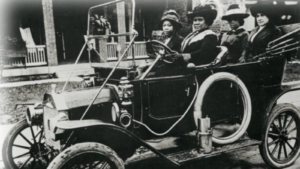It is no secret that Black Americans have long faced disparities in health care. From access to quality care, to cost and treatment, Black patients often experience significant barriers when trying to receive appropriate mental health services. In this blog post, we will explore the five biggest barriers to black mental health today. By understanding these challenges, we can work together to create systemic change and improve the overall health of our community!
1: High Costs Of Mental Health
The Affordable Care Act has been designed to make health care affordable for all Americans, but there are still 12% of African-American people without insurance and even those with it often face expensive co-pays or deductibles.
There are a number of reasons why mental health care is expensive for African Americans. One reason is that, on average, African Americans have less access to quality mental health care than white Americans. This lack of access can be attributed to a number of factors, including poverty and racism.
Another reason mental health care is expensive for African Americans is because they are more likely to experience certain illnesses, such as depression and anxiety, which are often treated with medication. Many medications used to treat mental illnesses are expensive, and this drives up the cost of mental health care overall.
2: Familial Shame Around Mental Health
There are a few reasons why familial shame around mental health is big in the black community. First, mental health issues are seen as a sign of weakness in our community. We’re taught to be strong and to tough it out, no matter what. So admitting that we need help with our mental health is seen as a failure. Second, there’s a lot of stigma around mental health issues in general, but especially in the black community. We’re often seen as “crazy” or “dangerous” if we have any kind of mental illness. This isn’t helped by the fact that the media portrayal of black people with mental illness is often very negative. Third, seeking help for mental health issues can be seen as a sign of disloyalty to our families and community. We’re supposed to be able to handle everything on our own, and asking for help is seen as a sign of weakness.
All of these factors contribute to the shame that many black people feel around mental health issues. This shame prevents us from seeking help, which in turn makes our mental health problems worse.
It’s important to talk about the ways that familial shame around mental health affects our community. By starting these conversations, we can begin to break down the barriers that prevent black people from getting the help they need.
If you’re struggling with your mental health, know that you’re not alone
If we want to improve the mental health of Black Americans, we must address these systemic problems head-on. Only by working together can we hope to create lasting change!
3: Cultural Stigma Of Mental Illness
One of the biggest problems with the Cultural Stigma Of Mental Illness in the black community is that it often prevents people from seeking help. This is particularly true for men, who are often taught not to express their feelings and to be strong at all costs. As a result, many men suffer in silence, which can make their mental health problems worse.
Another problem is that people with mental health problems are often viewed as weak or flawed. This can lead to them being shunned by their families and friends, which can make it even harder for them to get better. Finally, there’s the issue of racism. Some black people believe that white people only care about mental health issues when they happen to white people. This can make it difficult to trust mental health professionals, and it can also make black people less likely to seek help.
All of these factors contribute to the high rates of mental illness among black Americans. If we want to improve the mental health of this population, we need to address these systemic problems head-on. Only by working together can we hope to create lasting change!

4: Lack of Diversity In Health Care
There are a number of reasons why there is a lack of diversity in health care, but two primary reasons are lack of African American representation in healthcare and lack of trust.
African Americans hold less than 2% of all healthcare jobs, despite making up more than 12% of the population. This contributes to the distrust that many African Americans feel towards the medical community. Many believe that the health care system is not designed to meet their needs, which leads to poorer health outcomes.
There are many ways to address these issues, including increasing diversity in the healthcare workforce, creating culturally competent curricula and training programs for healthcare providers, and developing patient-provider communication interventions. All of these solutions can help create a more inclusive and effective healthcare system for African Americans.
5. Distrust of the Medical Industry
A lot of the mistrust that black Americans feel towards the medical industry is rooted in a long history of abuse and mistreatment. For example, the Tuskegee syphilis experiment was a government-sponsored study that lasted for 40 years. African American men with syphilis were not told about their diagnosis or given any treatment, even after penicillin became available. As a result, many men died of the disease or passed it on to their wives and children.
Other examples include the forced sterilization of black women in the early 20th century and the use of black patients as guinea pigs for new medical procedures. These abuses have created a deep mistrust of the medical industry among black Americans. This mistrust can make it difficult to get black people to seek medical care, which leads to poorer health outcomes.
There are a number of ways to address this issue, including increasing transparency and accountability within the medical industry, improving patient-provider communication, and increasing access to quality healthcare. By addressing these issues head-on, we can start to rebuild trust between black Americans and the medical industry.
These are just a few of the biggest barriers to black mental health today. If we want to improve the mental health of black Americans, we must address these systemic problems head-on. Only by working together can we hope to create lasting change!




Responses